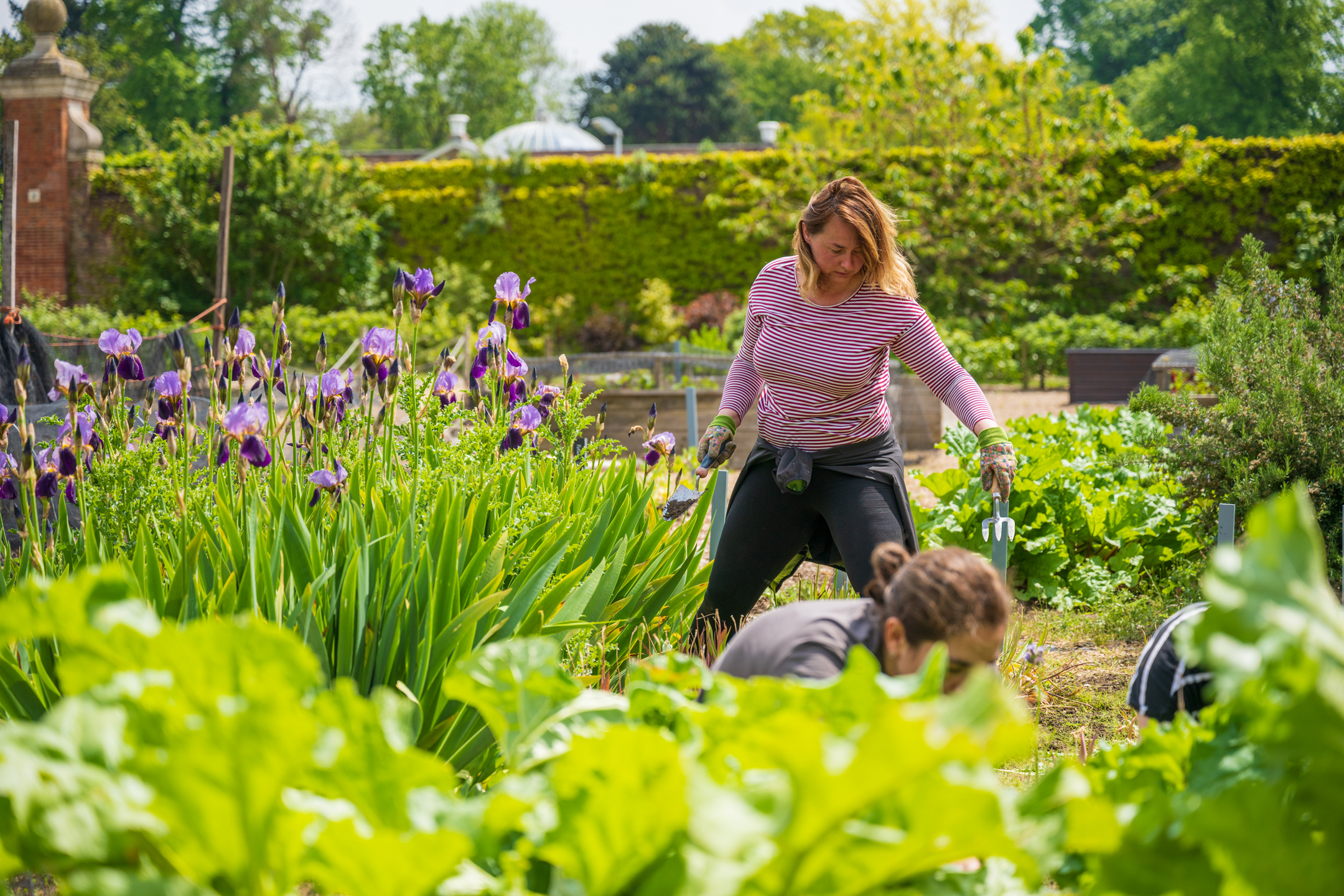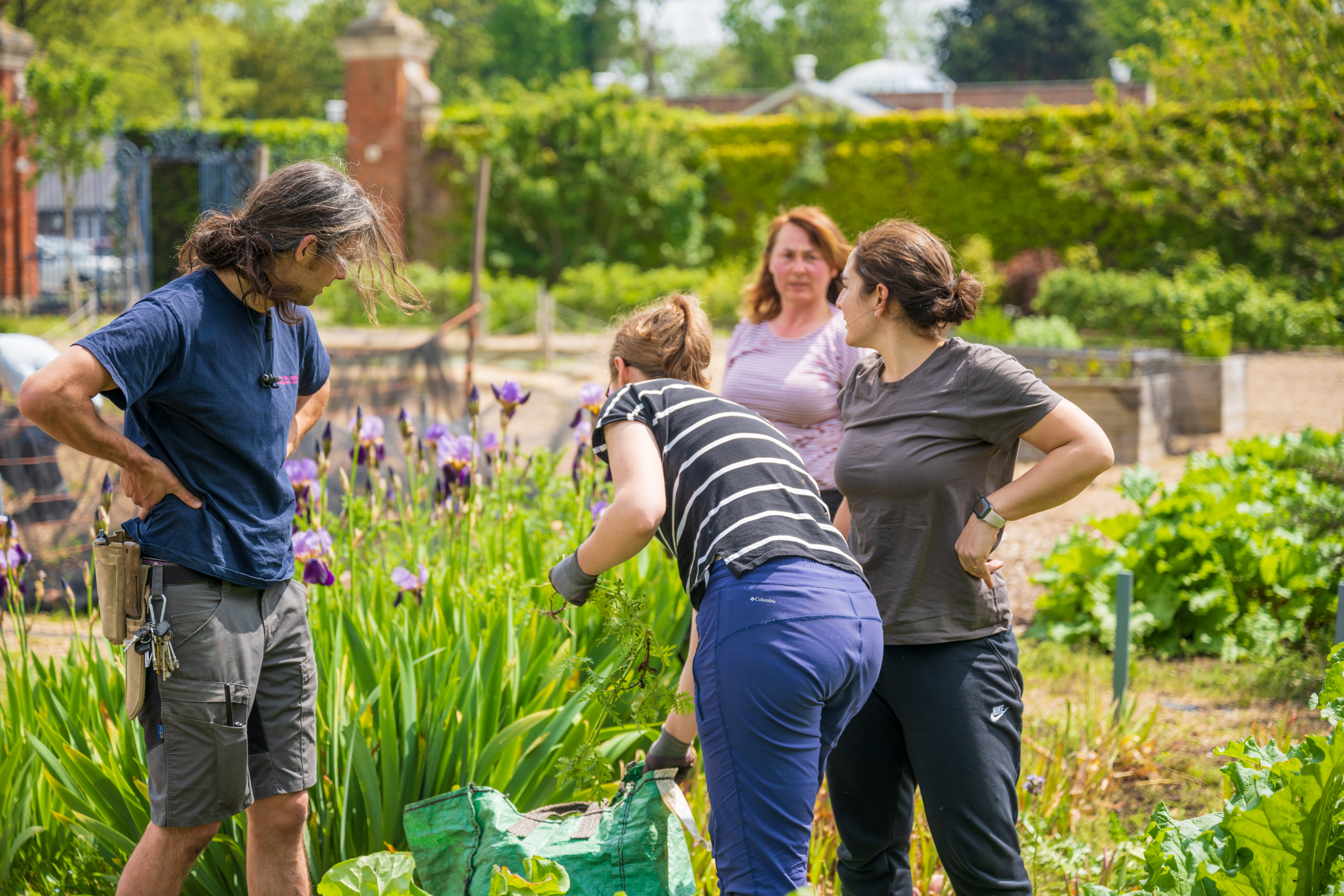Volunteers’ Week: Improving loneliness and wellbeing through gardening
As national volunteers week continues, garden volunteer Sue Lord leads the discussion on how volunteering and well-being go hand in hand. Having moved to London amid the pandemic, Sue finds numerous links between loneliness and its effects on our health. Using her own experience to tell the story of how taking time to volunteer has positively impacted her day to day life.
The rise of loneliness in the time of Covid
It must be getting to the point of being a cliché now to talk about the last couple of years as a “challenging” time. The elephant in the room though, is that for many people life continues to be challenging.
The campaign to end loneliness says that although less of the population are lonely now than at the peak of the pandemic lockdowns, figures have not reduced to pre-pandemic levels and that over 3 million people in the UK would still describe themselves as lonely much of the time, with the highest proportion being younger people, (16-29). The government has been actively engaged in tackling loneliness since 2018 as growing evidence has linked loneliness to various adverse health outcomes1. According to the British Medical Journal, ‘long-term loneliness is associated with unfavourable cardiovascular health indicators, such as increased activation of the hypothalamic-pituitary-adrenal axis, high blood pressure, increased cholesterol levels and coronary heart disease. Loneliness is associated with sleep disturbance and an increased risk of mild cognitive impairment and dementia’2.
Separately the British Journal of Psychology conducted a meta-analysis of studies on anxiety and depression in the UK population (covering about 46000 people) and found that compared to pre-pandemic times anxiety had increased in the UK population from 4.65% of the population to 31% and depression had increased from 4.12% of the population to 32%3.
The link between volunteering and long-term happiness
In my case, Covid turned my life upside down when I had to leave the European country that I had settled in, in the middle of the pandemic, to live in London – a city I had never lived in – to take care of my family. Unable to make the normal connections that you do when you move to a new city, my sole points of contact were my immediate family, the cashiers in coffee shops and dog walkers in the park. The obvious solution to me was Volunteering.
Numerous studies have reported on the benefits to mental health, of volunteering. In one example, a comprehensive study published in the Journal of Happiness Studies in 2020, researchers examined data from nearly 70,000 research participants in the UK, who received surveys about their volunteering habits and their mental health, including their distress and functioning in everyday life. Compared to people who didn’t volunteer, people who had in the past year were more satisfied with their lives and rated their overall health as better. Additionally, the researchers found that people who volunteered more frequently experienced greater benefits: Those who volunteered at least once a month reported better mental health than participants who volunteered infrequently or not at all4.
I decided to choose garden volunteering because I missed the garden that I had had to leave on coming to London. But there are other volunteering opportunities at Chiswick too, including bee-keepers, tour guides as well as shop and produce cart volunteers. Again, the evidence for gardening being good for mental health is compelling from numerous sources. The RHS revealed a survey in 2021 of 6,000 people that showed a significant association between gardening more frequently and ‘improvements in well-being, perceived stress and physical activity’5, and a meta-analysis by the University of Tokyo in January 2016 of 22 individual research studies also showed positive effects of gardening on health.6
Joining Chiswick House as a volunteer
I contacted Chiswick House and Gardens to see if they wanted volunteers because I had walked around the beautiful gardens with my dog soon after I arrived in London, and started volunteering the following week!
I am happy to report that the benefits to me have been manifold. All of the volunteers that I have met have been friendly and interesting, varying in age, motivation for being there and background. People come along for experience to help with future job ambitions, to help out in their community, or for companionship. My time spent working alongside other volunteers varies from chats about family and the weather to conversations on everything from wine to literature. The flexibility of the opportunity was key for me because I never know when I am going to have to work to a deadline and I can choose to volunteer for one, two or three mornings a week.
On the seven acres of the garden estate, there is much variety of work. The small permanent gardening team endeavour to make sure that we are not working on the same repetitive tasks every week, which means that it is firstly interesting, (and I have learnt a lot about garden maintenance), and secondly we are not repetitively tiring the same muscles. So, in the six months that I have been working there, we have planted bulbs, pruned roses, laid hedging, harvested reeds for beanpoles, removed brambles, weeded beds, and cleared areas for new planting. The work is satisfying; it is amazing what a group of 8-10 people can do over 2.5 hours, and it is nicely tiring being out in the fresh air doing physical work.
In addition, I have met lovely people. At Chiswick, whilst some people have been coming for several years, people come and go, and there are always newcomers as well as people choosing to work different days, but there is still a sense of familiarity and community.
As far as I’m concerned, now that I have embarked on my volunteering journey, I only wish I had more time to give.
If you want to find out more about volunteering at Chiswick House & Gardens or you would like to sign up to join our lovely team, click here.
Sources 1) Report prepared by the Campaign to end loneliness from ONS Opinions and Lifestyle Surveys June-Aug 21 and Sept-Nov 21 2) The prevalence of loneliness across 113 countries: systematic review and meta-analysis 3) Investigating the prevalence of anxiety and depression during the first COVID-19 lockdown in the United Kingdom: Systematic review and meta-analyses 4) Journal of Happiness Studies 5) Why garden? – Attitudes and the perceived health benefits of home gardening 6) Gardening is beneficial for health: A meta-analysis

